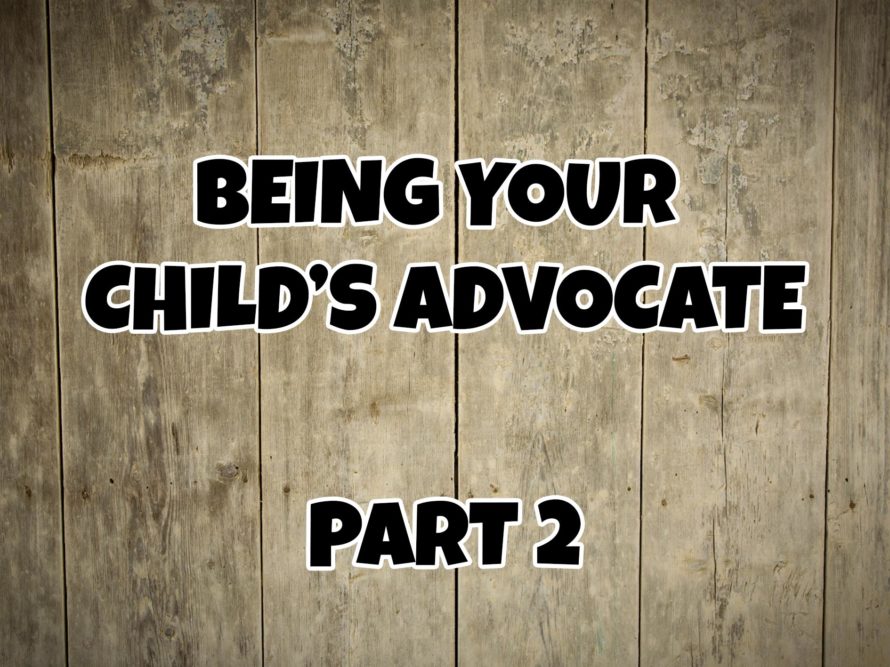In the last post I talked about good advocacy being a bit like a dance. For any dance to work, the partners need to trust each other and coordinate their efforts and moves. So, too, for your relationship with the school.
It seems that often, parents are advised to be tough as nails in their dealings with the school so that they can’t ignore you or your child. I have never found an adversarial relationship between home and school to be beneficial for the student. If a teacher dreads talking to you, they might not reach out when a problem arises. Rather, I prefer—as both an educator and a parent—to nurture an honest, open, respectful relationship so that we can work as a team for the benefit of the child.
This post is going to be about cultivating that relationship, but if you’ve already done everything you can to work with the teacher or the school, I’ll be addressing in Part 5 what to do if your given dance partner is uncooperative or intransigent.
But for now, back to building relationships:
- Start early
Parents, this relationship needs to start early, particularly if your child is likely to need a bit of extra TLC. By the end of the first week of school, reach out to the teacher, either through email or a hand-written note. Introduce yourself, express excitement about working together and optimism for the year ahead, and make sure the teacher knows that you’re available (and how to reach you) if they have any questions or concerns. Express that you’re interested in collaborating on the development of the IEP (if your child has one) and share any information that the teacher must know to be successful with your child. If the list of “must knows” is long, ask the teacher if you can meet rather than giving them a laundry list in your letter of introduction. If there is an educational assistant, guidance counsellor, or special education teacher involved, consider doing the same type of introduction letter for them.
2. Keep going
As the year progresses, try to be involved so that the teacher feels they know you. Attend the open house, special events, and especially the interviews. If you can’t attend something personally, send a proxy—send an aunt, uncle, or grandparent that can keep the school-family connection strong. Go to every meeting to which you’re invited—especially the ones regarding your child’s identification, placement, or programming—and think ahead about how you might contribute to the meeting including questions you’d like answered. Ask a friend or relative who has experience with the school system to help you prepare or get assistance from a community organization such as the Learning Disabilities Association.
3. The importance of a thank you
Just as you want the teacher to send home good news notes, acknowledge educators at the holidays or on teacher appreciation day with a personal thank you card (gifts are not necessary, and hand-written cards are valued and saved for much longer). All these little acts are contributing to building a positive relationship that will make it easier to have a difficult conversation if one is required down the line.
Now at this point you might be feeling like I’m putting all of the responsibility on your shoulders when the educators are the professionals tasked with helping your child. It’s true that a great teacher will already be doing a lot of this. But you can’t bet your child’s year on having a great teacher. Simply put, if they’re not the teacher you want, you’re going to have to be the advocate your child needs.
4. Plan regular communication
If your child is not very communicative about what is happening at school—especially if test scores, incident reports, or report cards are pointing to a problem—ask the teacher for regular communication. This might be a weekly email about how things are going, a daily communication book, or a bi-weekly phone call to check in.
5. Remember that this is a professional relationship
At times, the close work that happens between home and school can blur the lines between a professional and personal relationship. Keep the following Dos and Don’ts in mind to be the best partner possible.
- Do respect the teacher’s time: Be on time for meetings, try to stay within the allotted meeting time, prepare questions in advance to keep the meeting flowing, and be reasonable about how much and how often the teacher should communicate with you. Yours may not be the only child who requires more frequent communication, so it is not reasonable to expect a 30-minute phone call several times per week.
- Do respect the teacher’s boundaries: Your child’s teacher may not answer emails on the weekend or be available for before-school meetings, even if the teacher last year did. Maintaining an appropriate work-life balance is tricky for everyone. Remember that meetings with the school are part of your family life, but part of the teacher’s work life. The teacher may also have children to attend to or aging parents to care for.
- Do approach issues with an open mind: Our children are not always the best or most objective reporters of what is happening in the classroom. If they come home with a story that seems problematic, ask the teacher for clarification, but don’t assume you already know all the facts. Be ready to listen, but also make sure you’re heard.
- Don’t speak poorly about the educator in front of your child: It is in everyone’s interest to have a positive relationship between your child and their educators. Make sure that your child knows that you are working with their school and that you expect your child to do the same.
- Don’t insert yourself into their personal life: Don’t stalk educators’ social media accounts or expect an impromptu interview if you run into them at the grocery store. I had a colleague whose parents lived in the community where we worked. One family would look for my friend’s car at her parents’ house and then allow her children to drop by unsupervised on the weekend. It was the source of much tension at one Father’s Day barbecue.
To be a good partner in this advocacy dance, show up on time, do your part to make sure you’re prepared, and be ready to listen to and learn from each other.

